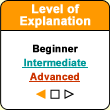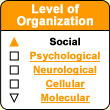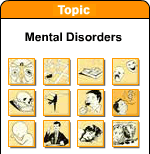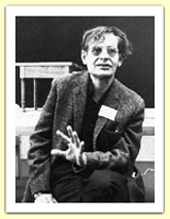|
|
|
|
 |
From Embryo to Ethics |
 |
|
|
|


According to Piaget,
the reason that young children have such an egocentric attitude
is that they can see the world only from their own viewpoint
and they feel inferior to the adults who make them obey certain
rules.
But by interacting more and more with other people, children
move from a moral attitude that is dictated to them by others
to a moral position that is more autonomous. Children then
become capable of considering rules critically and applying
them selectively for the sake of shared objectives and a desire
to co-operate. |
|
|
As children grow, their
intellectual faculties are not all that develops. Their attitudes
toward other people become more sophisticated as well. The
term “moral development” refers to this ever-growing
ability to take other people’s perspectives into account
before choosing
a course of action.
According to Jean
Piaget, children develop morally through social interactions
that let them find solutions that are fair to all concerned
(see sidebar). For Piaget, the educator’s role should therefore not be just to teach children society’s
rules, however valid they may be, but rather to present children
with situations that pose moral problems for them to solve.
Piaget therefore rejects the idea advanced by thinkers such
as the sociologist Émile
Durkheim, that children begin to make moral judgments as they adopt the norms
of their society.
| Another important researcher
who explored the differences in the moral judgment of children,
adolescents, and adults was Lawrence Kohlberg (1927–1987).
Inspired by Piaget, Kohlberg asked his subjects questions about
moral dilemmas. He was interested less in the values that his
subjects expressed in their answers than in the arguments that
they cited to justify them. By analyzing these arguments, Kohlberg
distinguished three different major levels in the development
of moral judgment. |
|
The first level, according to Kohlberg, is preconventional morality,
which is observed from age 2 or 3 to age 7 or 8 (any earlier, he
says, and the child is too young to have any moral judgment). At
this level, children have not yet become aware of social conventions
and simply do not take them into account. Instead, children judge
whether an action is good or bad according to the consequences
that it will have for themselves. In the early years at this level,
the main question a child asks about a possible course of action
is: would I be punished? A bit later, another question enters in:
would I be rewarded? Children’s conduct at this level is
thus directly linked to the authority of their parents and teachers.
Kohlberg’s second level of moral development is conventional morality, observed
from about age 7 to about age 15. Conventional morality comes into play from
the moment that a child realizes that there
are conventions in society that must be followed. At the start of this stage,
the child’s central concern thus becomes: what will people think of me?
Then, a bit later, the child asks: what would happen if everyone acted the way
I did? The actions that children at this stage regard as good are those that
maintain the social order or meet the expectations of the people around them.
It is essentially these goals that drive young people to conform and to be highly
dependent on other people’s opinions.
Kohlberg’s third level of moral
development, postconventional
morality, leads to conduct that goes beyond societal
conventions. It begins with questions such as: should I feel
obliged to do such-and-such a thing? The most morally sensitive
children may start asking such questions as early as age 12—for
example, when they hear about environmental destruction and the
chance to join a group to do something about it. Later on, the
question may become: is such-and-such a thing consistent with
universal principles, such as human rights? But only a minority
of people, regardless of their age, ever worry about such lofty
moral issues.
Kohlberg refines his model by dividing each of these three levels
in two, thus positing a total of six
phases in the moral development of the individual.
|
|





